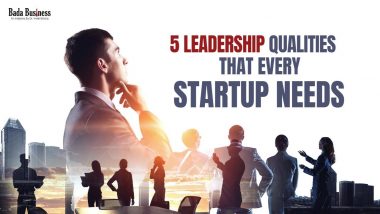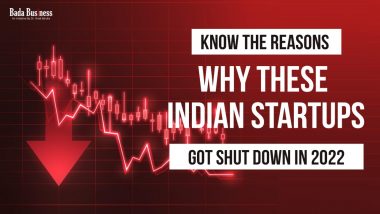In India, many entrepreneurs underestimate the costs associated with starting-up a business. So apart from having a great idea or a product, one integral part of setting up a startup is planning regarding all the costs involved. These costs should are an integral part of financial planning. Cost of equipment’s, company registration, software, staff, website building, business cards, etc. play a key role while starting up the business. Here are 12 different types of start-up costs you need to address before you start a business:-1. Registration cost/Legal entity
- First and foremost, you need to register your business as a legal entity with the state you are operating in.
- Registration of your company can vary upon the states, so before taking any legal step, you need to know the costing of all the procedures.
- To register your business, you can visit the state’s official business registration site to get an estimate or you can also hire a legal service company to work out the business start-up cost. If you want to fast track the procedure, such agencies can help you out with that too with an extra cost involved.
- In any business, equipment plays an important role. Almost every business needs some sort of equipment in the starting phase. For example; if you have opened a restaurant then you need a stove, dishwasher, cooking utensils, furniture etc.
- You can always get financing options for these types of equipment. You can also opt for a business loan by your bank or a local lender.
- If your equipment or machinery needs regular maintenance then add that cost too on a half-yearly or yearly basis.
- Having a store or office space can get pretty expensive, whether you buy it or take it on rent, it is a hefty part of your small business start-up cost.
- If possible, you should try to work from home or work out of a co-working space in the beginning. This is much cheaper than renting or buying an office space. It is also a good way to connect with other people and exchange ideas.
- If you are a retailer or you have more employees than renting a space can be a better option.
- If you are in manufacturing, distribution, wholesale or the retail industry than you need inventory to sell.
- Stocking your business with sufficient products before launching is very important to meet the potential customer’s demand.
- Inventory start-up costs can vary on the size and type of your business.
- Before opening your business, try to have price quotes from multiple vendors which will help you bargain the price and lower your inventory start-up cost.
- According to a research, a new business spends at least 5% of its budget on marketing.
- Marketing might include banners, business cards, brochures, postcards, signage, hoarding, newspaper ads, etc. This helps you in bringing more publicity but also increases your expenses at the same time.
- It is good that we live in the age of social media; so many advertisements can be done there for free.
- You can use Facebook, Twitter, Pinterest, LinkedIn and other social media platforms to advertise your start-up at a very low cost.
6. Website building
- It is always important to have a website for your business that looks professional.
- Most of the buyers start searching for a product on the internet which can lead them to your website which means more business for you.
- Nowadays, it is very easy to build a website, thanks to services like Wordpress and GoDaddy.
- You just need to register your website or domain name that demands a small fee yearly.
- After getting yourself registered, now you need to have a CMS (Content management system), to build your site which also includes a monthly or yearly subscription.
- For office structure, you usually need computers, chairs, desks, and landline connections for your employees.
- But apart from the basic furniture mentioned above, add in printer, ink, cabinets, water cooler, air conditioner, and other supplies in your start-up cost.
- Try to avoid special perks like coffee and snacks which is an additional cost although the cost varies on the number of employees you have and the business structure you are operating in.
- When you start a business, your customers might come in late but your bill payments start even before you can imagine. You are also responsible for paying the internet, landline, water, gas, and electricity bills apart from the rent and furniture cost.
- Include the installation cost of these services as well in your start-up cost.
- 25%-45% of your budget goes in salaries even if they are not bringing in much revenue in the beginning.
- Payroll also includes other benefits like; stipends, commissions, overtime payment, travel allowance, and bonuses.
- Always remember that your employees will also grow over the time as your business starts growing or picking up.
10. Insurance
- Just like the way you protect your health, your house and car with an insurance policy, you need to protect your business too.
- There are many business insurances in the market, analyze your business type to take the right insurance plan.
- While you are planning for all the costs that are involved in running a business, it is important to keep the taxes in account too.
- Apart from the taxes, you need a charted accountant to handle your finances. The CA can either be hired or outsourced depending on your budget, but his fees also will be a part of the expenses.
- If you are in a consulting business or you need to travel a lot then this expense should also be a part of your small business startup cost.
- If you are in the shipping business which includes packaging, postage and other shipping costs than you have to be very careful with your budget.
- In this case, you can always take the help of a third party or a governing party to ship your product. Try to get a quotation from multiple vendors to eliminate the extra start-up cost.





















